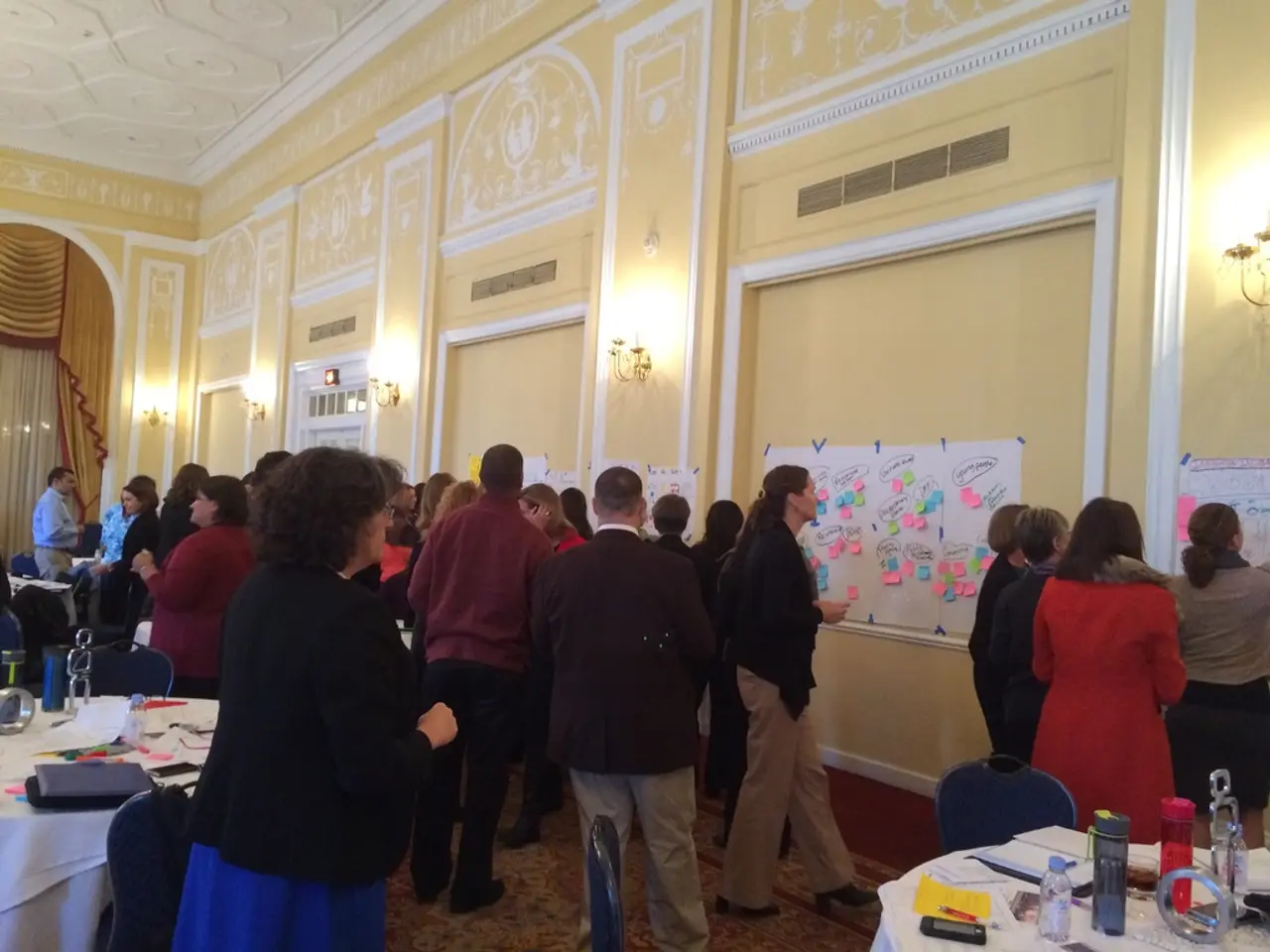Utilizing Taiwan's Subtle Influence
The National Palace Museum (NPM) in Taipei, Taiwan, is currently celebrating its 100th anniversary, and as part of this milestone, a significant exhibition titled "100 Treasures, 100 Stories: Treasures from the National Palace Museum" is running in Prague from last Thursday until Dec. 31. This exhibition is organised by the Ministry of Culture of Taiwan and features iconic artifacts like the Jadeite Cabbage with Insects and Along the River During the Qingming Festival.
Over the years, the NPM has been a part of numerous international cultural exchanges, with its treasures displayed in various countries such as the US, Russia, the UK, France, Germany, Japan, and now the National Museum of the Czech Republic in Prague. This exhibition is also part of the government's "2025 Taiwan Cultural Year in Europe" campaign to promote Taiwan's role in preserving key elements of Chinese heritage.
However, the exhibition has not been without controversy. China has accused the exhibition of being an act of "desinicization" and an attempt to promote "Taiwan independence in culture." In response, Minister Lin Chia-lung, Taiwan's Minister of Foreign Affairs, has stated that China's remarks reveal its "insecurity" and "intention to monopolize Chinese culture."
The Chinese Communist Party (CCP) has historically treated cultural assets and heritage as subordinate to politics, using them to consolidate its own rule and expand international influence. During the Cultural Revolution from 1966 to 1976, many Chinese historical and cultural treasures were destroyed by the CCP and its Red Guards.
In contrast, Chinese culture has been integrated into Taiwanese society, with various influences from indigenous people, Spanish, Dutch, Japanese, Chinese, Americans, and Southeast Asian migrants. Minister Lin Chia-lung has stated that when Chinese culture takes root abroad, it often flourishes with new vitality.
Lin also made a striking comment, stating that "under the Chinese Communist Party [CCP], adhering to Marxism and Maoism, Chinese culture is dead." Confucianism, once depicted by Mao Zedong as anti-intellectual and feudal, is now spread internationally through Confucius Institutes to spread propaganda and spy on Chinese communities abroad.
In light of these tensions, Lin has emphasised the importance of Taiwan making good use of soft power, not only with cultural treasures, but also technology, democratic values, and agriculture, to further bridge Taiwan and the rest of the world. The NPM artifacts being displayed in Europe would transform into modern cultural assets to be appreciated by all humankind as part of global civilization, not just as relics of ancient China.
Minister of Foreign Affairs Lin Chia-lung and Minister of Culture Lee Yuan attended the exhibition opening in Prague, underscoring Taiwan's commitment to sharing its rich cultural heritage with the world. Despite the challenges, the exhibition in Prague promises to be a significant milestone in the NPM's centennial year, showcasing the resilience and vitality of Taiwanese culture.
Read also:
- Is it feasible for nuclear energy to supplant coal-based electricity production in India?
- Pharmaceutical corporation to invest $30 billion in U.S. for increased natural gas production
- Journey Across America: Travels from the Eastern to Western Coast
- Demonstrating Carbon Capture in Agroforestry Through Digital Measurement Verification (MRV)



